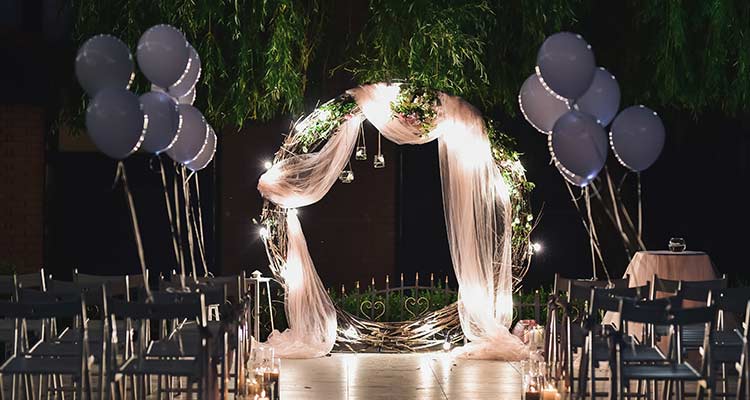What Really Is An ‘Arranged Marriage’?
Marriages are what they are – a social contract between two families with the society as their witness. And when you understand this definition of marriage, arranged marriages are also crystal clear. The arranged marriage success rate is more because nobody enters into such an arrangement casually. Parties involved take these things seriously. They make preparations, take precautions and only then go for the final stage. That is the best way to prepare for a lifetime of togetherness. And there are steps you can actually take to ensure the bond grows stronger with time. And yes, love does happen in arranged marriages as well, just that the sequence of affairs is different.
What Is The Arranged Marriage Success Rate?
6.3% is the figure that Wikipedia quotes for arranged marriage success rate. Now, this success rate may or may not mean marital satisfaction, but it surely means that arranged marriages are far more stable than other marriages. Often, there have been debates whether the low divorce rate indicates stability in marriage or lack of social acceptance and fears of divorce. Nevertheless, this is a fact that people in arranged marriages are not very likely to split up. Most marriages that lasted long, most marriages that survived the challenge called life, are the ones that have been arranged. It is not to say that divorces do not happen in arranged marriages – but they are considerably lower. The reason arranged marriages are more successful is the fact that the couple is compatible in areas that matter most in life – personality, religious beliefs, cultural and spiritual obligations etc. In fact, in India, the divorce rates of love marriages are much higher than those of arranged marriages. Mind you, we are talking of arranged marriages between consenting adults, not forced marriage or child marriages.
How do arranged marriages work?
Arranged marriages work like any other marriage – they rest on the fundamental principles of mutual respect and love. Because in an arranged marriage it is not an individual making the choice, the chances of going wrong are lesser. The whole family comes together to take care of you, your future child and ensure compatibility between you and your spouse. The greatest crisis in nuclear families right now is the fact that there is no one to show a couple the right direction when there is a heated argument. But if your parents and family arranged your marriage, then they do get involved and solve the problems between the couple. Sometimes you really need that extra help. In an arranged marriage from the first time, you meet in an arranged setting the partners and families know what is expected from each other. This clarity helps all of you to configure your lives around those expectations.
8 Arranged Marriage Facts No One Talks About
Scholars and learned people have been actively debating on account of whether arranged marriages are happy marriages, respectful and loving or they encourage the patriarchal mindset and violate women’s rights in particular. No doubt individuals in arranged marriages get emotional, social and financial support from their respective partners, but are they happy too. Well, they probably are. The below-arranged marriage facts will probably change any untoward assumption you may have. Various societies, cultures, religions have embraced the concept of arranged marriages for the stability they offer.
1. Compatibility on bigger things
Millions of relationships break every day because they want different things from life. Compatibility is nothing when you are running in different directions. Liking the same things, like songs and movies is alright but wanting the same things in life is also required. In an arranged marriage, you and your partner come from similar cultural backgrounds, more or less having the same life-goals. This makes up for the bigger things in life. On account of compatibility, cultural beliefs and expectations, arranged marriages fare better and the disputes between partners are lesser.
2. Inheritance and rights
Marriage is a social contract. With shared lives comes the benefit of shared property. When it is a marriage between equals the future is secured. When your family takes charge of your marriage, they also take charge of your future. When a marriage is arranged, the financial aspect is not left out of the equation – both sets of parents see to it that their children are secure. At times, when people marry against families and cut ties, they are left at a dead-end if bad times strike them.
3. Saves you time!
In this hectic modern life who has the time for maintaining a relationship? First, it studies then comes the job, it’s one challenge after another. We live jumping from crisis to crisis. Moreover, scanning various people as prospective life-partner seems daunting. And then how many dates are really enough to take the plunge? And what about heartbreaks? One of the most appealing arranged marriage facts is that it saves you time, heartbreak and hurt.
4. Arranged marriages help to keep the culture alive
Culture is the base on which an individual rests his beliefs, loyalties, hopes, values and principles. Also, fears. Indians have become globalised citizens. Brilliant as Indians are, they get the opportunity to study and work abroad with much ease. But you can take Indians out of India but you can never take India out of Indians. For NRI citizens, arranged marriage is a way of keeping India alive in their hearts and everyday life. Unsaid, often understated, but actually if you think of it, one of the most important arranged marriage facts – keeping the culture alive.
5. Marriage happens at the right time
Out of college and thinking of marrying your girlfriend? Or dreaming about getting married to someone though they have been jobless for a year? While you may take the plunge, call it love, and regret it later, there is no such chance in an arranged marriage. Your family starts thinking about your marriage only when you are settled and mentally prepared for marriage. They know you well and they know that you are ready to take the responsibility of another person before they start coaxing you for marriage. But when they do, you must listen.
6. Modern-yet-traditional
For Indians modernity goes hand-in-hand with traditions, the same goes for a marriage. With the age-old traditions of marriage, there needs to be a balance of modern thoughts. But it is not same for everyone. An arranged marriage helps you match with someone who has the same balance as your upbringing and family values. This already makes it easier to sail by when the honeymoon period is over.
7. Responsibilities are shared
When your parents decide your marriage they become partially interested, involved and responsible for your marriage to work. They lend an extra hand of support to sort things out of their own vested interest. Love marriage may alienate parents but there are minimal chances of that in an arranged marriage.
8. Precedence
One of the most viable arranged marriage facts is that it has been embraced by various cultures and religions across the world since centuries– and there is a reason for that. Stability at home helps people to prosper in their lives. An arranged marriage is the easiest example of such stability. Your parents may have done it and you have seen it all your life. Now it’s your turn. Now the opportunity is given to you to bring up the new generation by providing them with some stability and assurance. We are not saying that arranged marriages are the only solution, but it is obviously a viable option. The above-arranged marriage facts are strong enough to make one consider the option. The globalised Indians of this modern age are realising that more and more in this speedy hectic lonely life that they are trying to survive. Even Raj from The Big Bang Theory asks his parents to arrange a marriage for him though he was an established scientist working in Caltech. This old tradition is still that popular. And Bollywood stars Shahid Kapoor and Neil Nitin Mukesh could actually come up tips on how to be super happy and secure in an arranged marriage.





